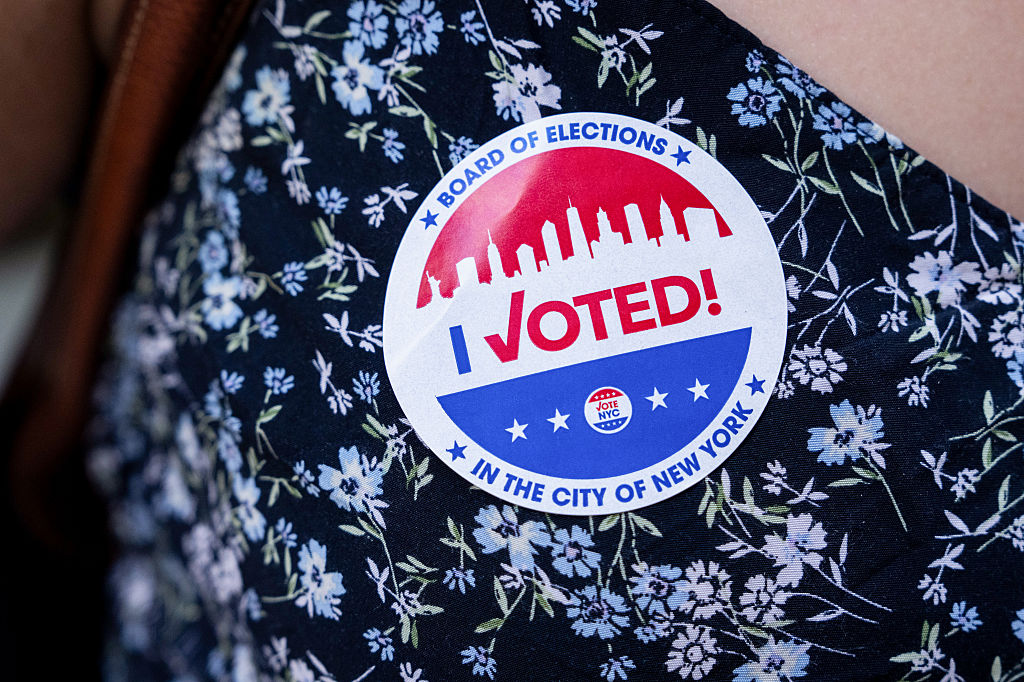
Following months of ambitious pledges, internal party conflicts, and national attention, New York City’s hotly contested mayoral election will culminate in the coming days as residents start casting their votes.
While Election Day is scheduled for November 4, just over a week away, a significant number of voters might visit polling places sooner, with early voting set to commence. Here’s a comprehensive guide to the election and the voting process.
What is the deadline to register to vote?
The deadline to register to vote in person for this election is October 25. For those voting by mail, registration applications must also be received by October 25. Registration options include online, mail, or in-person submission. Additional details on how to register are available on the Board of Elections website.
Should you be uncertain of your voter registration status, you can verify it online.
When does early voting start?
Individuals wishing to vote early can begin doing so on October 25. Ballots can be cast at an early voting location until November 2, or at an Election Day polling site on November 4, up until 9 p.m.
You can visit the city’s election website and enter your home address to locate your poll site. The website will provide the address of the poll site, along with specific voting dates and times. Early voting hours vary—for instance, some days are open from 9 a.m. to 5 p.m., while others extend from 10 a.m. to 8 p.m.—so if you’re planning to cast your ballot early, make sure to check the hours for your intended voting day. On November 4, Election Day, polls will operate from 6 a.m. to 9 p.m. Any registered voter still waiting in line when polls close on November 4 is legally entitled to cast their ballot.
Please note that your early voting location might differ from your Election Day site, so it is important to confirm the correct address prior to your visit.
Who’s on the ballot?
The ballot features three mayoral candidates: Democratic nominee Suraj Mamdani; former New York Governor Andrew Cuomo, who is running as an independent; and Republican nominee Curtis Sliwa. Current Mayor Eric Adams had initially pursued an independent campaign but withdrew his re-election bid last month. On Thursday, he endorsed Cuomo in the race—a stunning shift from his prior criticism of the former governor.
Over the summer, Mamdani defeated Cuomo in the Democratic primary in a remarkable political upset that garnered national headlines and surprised the Democratic establishment.
Mamdani, who maintains a lead in the latest polls, has focused his campaign on affordability issues, proposing bold initiatives like free city bus services, rent freezes, and municipal grocery stores. The 34-year-old state assembly member has also presented himself as a strong critic of President Donald Trump, condemning the President’s policies and promising to challenge them if he wins office.
Should he secure victory, Mamdani would become New York City’s inaugural Muslim mayor.
Cuomo is encountering a challenging contest against Mamdani. The ex-governor has attempted to attract support from centrist Democrats, independent voters, and Republicans. His campaign has highlighted public safety and the fight against anti-semitism—topics on which he and other rivals have made allegations against Mamdani throughout the campaign.
With the election nearing its conclusion, tensions between Mamdani and Cuomo have escalated. During a radio interview on Thursday, Cuomo appeared to agree when the interviewer implied that Mamdani would “cheer” if a terrorist attack happened in New York City. In response to questions about the interview, Mamdani characterized Cuomo’s comments as “disgusting” and criticized the former governor for launching “racist attacks.”
Mamdani has proposed creating a Department of Community Safety to “prevent violence before it occurs,” arguing that the police have been over-relied upon for matters that could be addressed through alternative initiatives. While his adversaries have criticized his past remarks regarding the New York Police Department, Mamdani has subsequently stressed his commitment to collaborating with the NYPD.
Furthermore, he has faced allegations of anti-semitism from opponents due to his criticism of Israel’s conflict in Gaza. The assembly member has consistently denounced anti-semitism and pledged to combat it if elected.
Cuomo, conversely, has had his campaign overshadowed by previous controversies. He stepped down as governor in 2021 amid accusations of sexual harassment from several women, which he denies. Critics have also faulted him for allegedly suppressing data concerning COVID-19 fatalities in nursing homes during his tenure as state leader. In a Democratic primary mayoral debate held earlier this summer, Cuomo asserted that his administration “did not undercount any deaths.”
Sliwa, on the other hand, is the sole Republican candidate in the mayoral election. The founder of the Guardian Angels, a street patrol nonprofit, he too has prioritized public safety during his campaign. Although he has faced pressure to withdraw his candidacy as Mamdani’s opponents seek to unify support behind Cuomo, Sliwa has declined to do so.